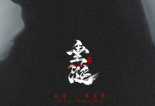Episode 11
《Tang poetry stories》Episode 11 focuses on Wang Wei, a Tang Dynasty poet known as the “Poetry Buddha”, famous for his landscape and pastoral poems.This collection uses Wang Wei's life and masterpieces, such as - Lu Chai - and - Mountain Residence in Autumn Ming - to show his philosophy of life that transcends the secular world and pursues peace of mind.

The plot begins with Wang Wei's official career in Chang'an. Although he has achieved political achievements, he yearns for nature and seclusion in his heart.The scene switches to the scene where he lives in seclusion in Wangchuan Villa, where there are beautiful mountains and clear waters, far away from the hustle and bustle.“No one can be seen in the empty mountain, but people can hear their voices.”This poem describes the tranquility and harmony of his environment and reflects Wang Wei's deep understanding of the beauty of nature.
Through Wang Wei's interactions with friends, such as his meeting with Meng Haoran, the friendship and common literary pursuits among literati in the Tang Dynasty are explored.They enjoyed the scenery and recited poems together, showing the elegant life of literati in the Tang Dynasty.“The bright moon shines among the pines, and the clear spring rocks flow upstream.”Such verses not only depict the beauty of nature, but also reflect Wang Wei's inner peace and detachment.
This episode may also touch on how Wang Wei's Buddhist beliefs influenced his poetry creation, and how he sought spiritual relief in poetry and painting.“Walking to a waterless place, sit and watch the clouds rise.”This is not only a depiction of the natural landscape, but also a reflection of Wang Wei's philosophy of life, which is to be content with the situation and follow nature.
《Tang poetry stories》Episode 11 conveys the theme of Tang Dynasty literati's pursuit of spiritual freedom and inner peace through Wang Wei's story, and how they find the true meaning of life in nature and art.









